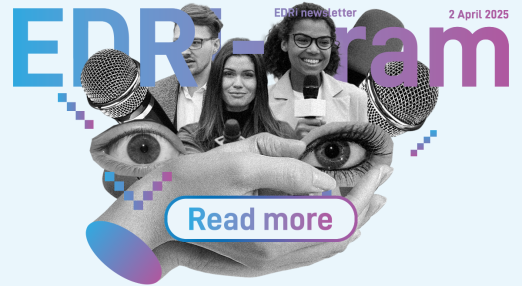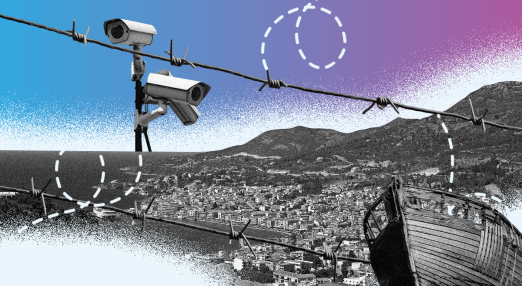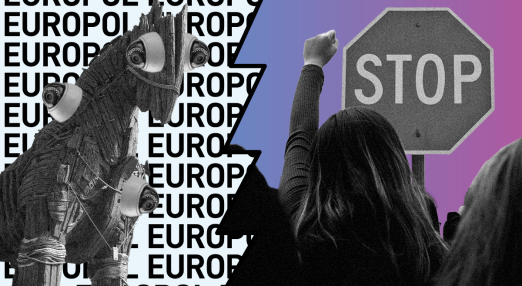Our work
EDRi is the biggest European network defending rights and freedoms online. We work to to challenge private and state actors who abuse their power to control or manipulate the public. We do so by advocating for robust and enforced laws, informing and mobilising people, promoting a healthy and accountable technology market, and building a movement of organisations and individuals committed to digital rights and freedoms in a connected world.
Filter resources
-

EDRi-gram, 2 April 2025
What has the EDRis network been up to over the past two weeks? Find out the latest digital rights news in our bi-weekly newsletter. In this edition: DSA complaint X, New civic coalition for journalists and civil society, imagining EU-topia, & more!
Read more
-

When data never dies: How better GDPR enforcement could minimise hate and harm
Lax enforcement of the GDPR has had far-reaching consequences for many people and collectives in the EU, especially those most vulnerable. Through a story based on real life experiences of people, this blog highlights the gap between the GDPR’s promise of protection and its current reality of weak enforcement, and the opportunity EU lawmakers have with the ongoing GDPR Procedural Regulations to take bold steps to protect our data rights.
Read more
-

Building bridges for digital rights: The Civic Journalism Coalition
EDRi, EDRi member ECNL, Lighthouse Reports have launched the Civic Journalism Coalition – a space to strengthen investigative reporting, protect journalists from surveillance, and advocate for digital rights policies at the EU level.
Read more
-

Utopian dreams, sobering reality: The end we start from in EU’s approach to technology
We imagine a day in the near-future, when EU lawmakers commit to building a world where people, our planet, and democracy flourishes – and heed to civil society’s long-standing collective demands to achieve this. But in reality, we seem to be getting farther and farther away from this utopian scenario, and are preparing for a sobering next few years in the EU tech policy space.
Read more
-

The Security Playbook
EDRi affiliate SUPERRR is challenging “Security Theater” as a societal maneuver.
Read more
-

Surveilling Europe’s edges: when research legitimises border violence
In May 2024, EDRi member Access Now’s Caterina Rodelli travelled across Greece to meet with local civil society organisations supporting migrant people and monitoring human rights violations, and to see first-hand how and where surveillance technologies are deployed at Europe’s borders.
Read more
-

EDRi files DSA legal complaint against X
EDRi and our member ApTI filed a DSA complaint against social media giant 'X' for breaching its obligations towards Trusted Flaggers.
Read more
-

Stop Europol’s Trojan Horse: 168 organisations and experts call to reject “insidious” police powers expansion
EDRi published today a joint statement by 168 organisations and experts calling for the rejection of the Europol Regulation and to amend the proposed Facilitation Directive. The so-called ‘Facilitators Package’ would expand surveillance measures, erode the right to seek asylum and criminalise human movement.
Read more
-

EDRi-gram, 5 March 2025
What has the EDRis network been up to over the past two weeks? Find out the latest digital rights news in our bi-weekly newsletter. In this edition: Our call to reject the Europol reform, UK and France launch fresh attacks on encryption, & more!
Read more
-

Apple and the long secret arm of the UK Government
Apple disabled their 'advanced data protection' service for UK customers following a secret UK Government order demanding access to global user data. EDRi member Privacy International criticises this weakening of security standards for users in the United Kingdom.
Read more
-

TikTok’s ‘For You’ feed risks pushing children and young people towards harmful mental health content
Amnesty International’s research details how TikTok’s relentless pursuit of young users’ attention risks exacerbating mental health concerns such as depression, anxiety and self-harm.
Read more
-

Poland searches for silver bullet for CSA Regulation
The Polish Council Presidency attempts to break the deadlock on the controversial 'Chat Control' proposal. We analyse the new approach and what could happen if Member States approve it.
Read more
